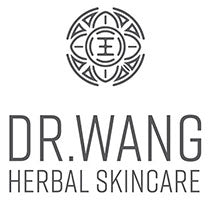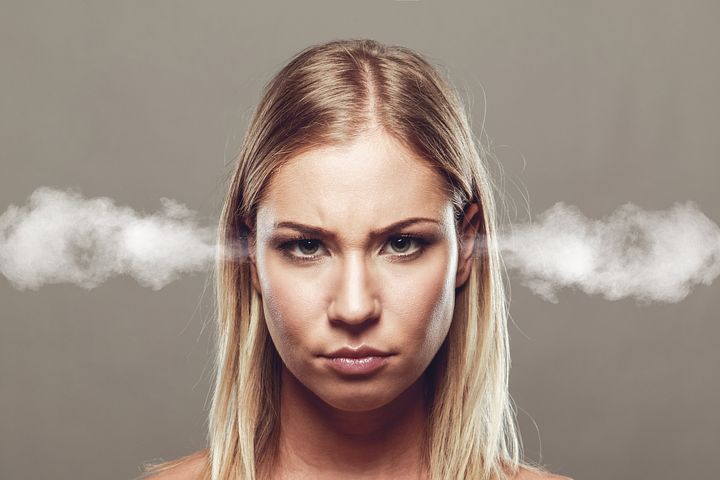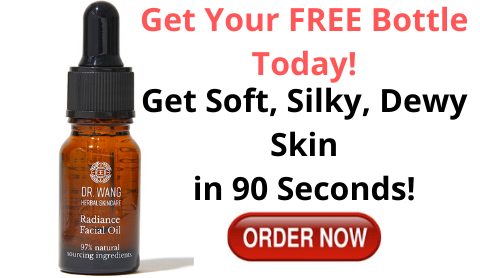Ever wondered why your cream or lotion stings or burns your skin?
If so, you are not alone. In 2011, a research study published in the International Journal of Dermatology showed that more than 44% surveyed people in the USA stated that they have sensitive or very sensitive skin. A good portion of those people with sensitive skin often complains about the burning, itching and stinging sensation when they use a skincare product.
So, what causes those uncomfortable feelings?
There are two major reasons: poor skin barrier and certain ingredients in the skincare products.
Poor Skin Barrier Causes Burning & Stinging Sensation
Those of you who have been following our blogs & read our book know that we talked a great deal about the skin barrier. It is not a sexy subject, but it is one of the most important topics if you want healthy or younger-looking skin.
The skin barrier is the outer most layer of the skin. It is only a few micrometers in thickness, which is smaller than the width of your hair. It is made of dead cells, proteins, and natural lipids.
An intact and functional skin barrier slows down water loss, prevents irritants or allergens from entering the skin, and maintains the protective and functional integrity of the skin. All of these benefits translate into a smooth, moist, glowing and healthy skin.
There's a number of internal and external causes that can weaken or destroy the skin barrier. As we age, our ability to synthesize natural oils and lipids is decreased. Those lipids and oils are the cement that holds the skin cells and proteins together. In addition, our skin becomes naturally dry and flaky as we age, which can make the skin “leaky.”
External causes include excessive washing with hot water or other harsh chemicals that can strip away the natural lipids in the skin. Also, sunburn, pollution, skin disorder such as eczema, can break down the skin.
As you can imagine, when this outer layer of protective skin is not working properly, irritants, chemicals, allergens, bacteria, viruses can penetrate and gain access to the living portion of the skin.
When this happens, it can trigger inflammation and irritation, which can lead to redness, and the uncomfortable burning and stinging sensations.
5 Common Types of Ingredients That Trigger the Burning and Stinging Sensation:
1. Alpha (AHA) & Beta (BHA) Hydroxy Acid
AHA & BHA are used in many skincare products. They function to exfoliate the skin making it smooth and soft. They can treat acne and other unwanted blemishes. At a higher concentration, these acids can also stimulate collagen production and help to erase wrinkles.
All these anti-aging benefits are the reason that AHA and BHA are commonly present in many skincare products.
However, acids have a low pH. When the acids penetrate the skin, it can sting and burn. In addition, the acids also dissolve the oils and lipid that hold the skin cells together and weakens the skin barrier.
Common acids used in the formulation include glycolic acid, lactic acid, benzoic acid, salicylic acids. So watch out for lotions and creams with those ingredients, if you have sensitive skin.
2. Surfactants and Emulsifiers
Surfactants and emulsifiers, especially the ionic types, can irritate and sting skin, especially for people with sensitive skin.
Lotions, serums, and creams are made by mixing water and oil together. If you ever made salad dressing, you know that oil and water do not stay together in a mixture for long. They will separate.
Surfactants and emulsifiers are needed to hold water and oil together in lotions, serums, and cream.
If you are looking for anti-aging products, look for pure oil products. It has no surfactants or emulsifiers.
Alternatively, pick serums, lotions or creams made without harsh surfactants. Often patented formulation technologies are needed to make these products with very little or no surfactants. For example, a patented MicroDroplet technology was used to make our Nourishing Youth Serum.
If you have sensitive skin or eczema, it is better to use an ointment or balm, like that of Dr. Wang Herbal Rescue Balm. It only has the oil phase and no water. As a result, it does not need surfactants or emulsifiers in the formulation.
3. Preservatives
You need preservatives to prevent the growth of fungus, bacteria, and yeast in the skincare products. Any serum, lotions or creams that have water need preservatives. Otherwise, the products can be contaminated with nasty bugs that will cause infections.
Some of the preservatives, like formaldehyde, Diazolidinyl and imidazolyl urea, parabens, and methylisothiazolinone, can trigger irritation and allergy in people with sensitive skin.
4. Alcohols
There are a number of reasons to include alcohol in a skincare formulation. They range from acting as a preservative to changing the texture of the formulation.
Alcohols can strip away the natural lipids, and weaken skin barrier, and cause the stinging and burning pain.
5. Fragrances
We like to draw a distinction between aromas from the artificial fragrances (derived from chemicals) and that aromas from herbs and essential oils.
In general, artificial fragrances may be more likely to cause irritating symptoms, such as the burning or stinging sensation.
Common Herbal Skincare Products and Ingredients That Can Calm the Burning & Stinging Sensation
Aside from avoiding certain ingredients, there are a number of ingredients that are well suited for people with skin sensitivity.
Natural oils.
Natural oils are used for thousands of years, and it is especially great for the fall and winter seasons. They don’t have any surfactants or emulsifiers that will irritate the skin. Furthermore, natural oils, especially those contain herbal skincare ingredients, can deliver a surge of hydration and moisturization necessary to rebuild and fortify the skin barrier. With a healthy and intact barrier, the skin will be more strong to tolerate any other skincare products that have the potential to cause burning or stinging sensation.
Ceramides
These are essential lipids in the skin that is used to form the skin barrier. Skin with a healthy barrier contains correct ratios of ceramides and cholesterols. Low concentration of ceramides can lead to dryness and irritation of the skin.
Beeswax
Beeswax not only provides excellent moisturizing property and also has antiviral, antibacterial and anti-inflammatory properties. Inflammation and infection can potentially attract immune cells to the skin, which can lead to a break down of skin barriers. Natural beeswax prevents this process and provides an excellent occlusive barrier function.
Shea Butter
Shea butter is derived from the Shea tree. It has been used for centuries to fix dryness, dark spots, stretch marks, and wrinkles. It is one of the best natural and herbal skincare ingredients that support skin elasticity and delivers rich content of cholesterol, fatty acids and oil needed by the skin to fortify the skin barrier.
Licorice Root.
Surprised. This is one of the most versatile and effective natural herbal skincare ingredients. It is used widely in Asia as a medicinal, dietary and skincare ingredient. Licorice root has strong anti-inflammatory properties that can help to boost skin barrier. Learn more about all the amazing skin benefits of licorice root.
Final Thoughts:
Experiencing the stinging and burning sensations may be your skin telling to build up the skin barrier or read the ingredients in your favorite lotions, creams or serums that you are using at this moment. However, having a stinging or burning sensation does not mean you have to throw away the product. Often time, as you continue to use the product, your skin barrier may strengthen and become tolerant of the products. Of course, if you continue to experience that uncomfortable sensation or getting rashes, it is time to move on and find a gentler product.






I am use svr cleanser then i put papulex lotion it’s the first day that i am using the second product but when i put it i felt the burn i have combination skin and my skin now have some type of acne its so small but under the skin and red and looks like acne scars and some just with pus i don’t know what to do should i continue with these products ( ps . In summer i did suffer from acne and my dermatologist recommend for me retacnyl and some medicines it works after two month but here we are at the same thing but now the acne are different)
Thanks for explaining sensitive skin in an easy to understand format. I will share with my Esthetician Students!
About 3 days ago now, I have this burning sensation under by brows/brow bone. Everything I apply, lotion, water cream, beauty water toner, it all stings. I use a glycolic 2% for about 1 week now but don’t apply it around my eye area. Also started using a new face wash that is pH 5-6. That’s the only thing I’ve recently started using that’s new. I can’t figure out why it’s burning. There’s no mark or anything. Any suggestions on what to do?